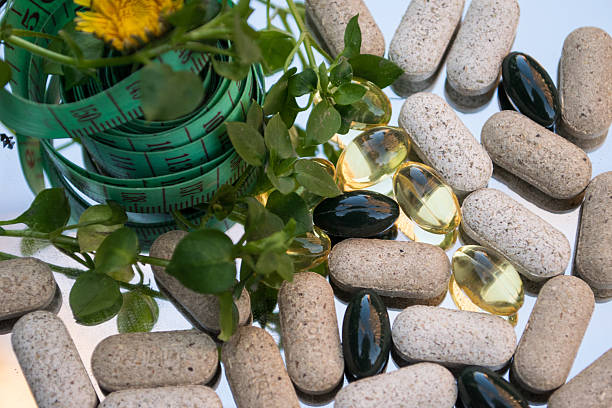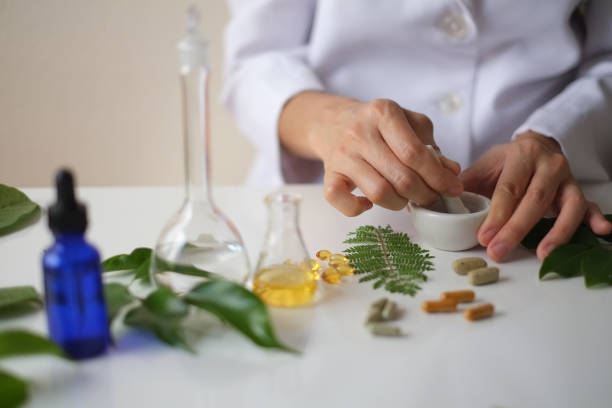Herbal Approaches to Boosting Fertility
As much as couples who intend on having a child will be considered blessed, the process of conceiving can be a bit fulfilling. Even though today there are different pharmaceutical possibilities, people tend to opt for the natural ways more and more often. Herbal Approaches to Boosting Fertility that have appeared rather recently offer a more gentle and frequently comprehensive approach to the enhancement of reproductive health. Here is an attempt at synopsizing a world of herbs and their capabilities of helping couples on the way to conception.

When it comes to fertility and herbal medicine, what should I know?
However, to understand the special effects of herbs on human generative health, there is a need to appreciate some fundamentals of reproductive health. Herbal Approaches to Boosting Fertility, confession. The process of fertility is regulated by hormones and physical health; it also may depend on a person’s emotional state. Herbal remedies are supposed to enhance these different facets that could, therefore, enhance overall reproductive processes.
Popular Herbs that Help to Boost Fertility
One of these is chasteberry (Vitex agnus-castus).
Chasteberry has long been secondhand in herbal approaches to boosting fertility. It has been said that this herb can act upon hormones and correct hormone imbalances, especially in women. It may regulate the menstrual cycle and enhance progesterone synthesis, which is critical for pregnant women.
Maca Root
As an herb from the Andes Mountains, maca root is extensively used in herbal methods to boosting fertility for both men and women. It is a source of nutrients and may also boost libido, increase sperm count, and regulate hormones. These concerns include some studies showing that maca can improve sexual vigor, which fires up under stress, a factor that is mostly unheard of but could be the root of fertility problems.
Ashwagandha
Stress has been known to greatly affect fertility, and this product is famously known to reduce stress. It may also assist in regulating cortisol levels, although this adaptogenic herb was widely known to therefore possibly enhance general reproductive function. This is widely used in herbal approaches to boosting fertility, especially when an individual is facing stress-related fertility problems.
Shatavari
In a modern system of Ayurvedic medicine, Shatavari is called a female aphrodisiac. It is believed to regulate hormones, and it could in the meantime enhance the quantity and quality of the cervical mucus needed to help sperm to move. This herb is now beginning to find its place in Western herbal approaches to boosting fertility.
Various factors, such as diet, stress level, pollution, cholesterol, and a few more, and the uses of some common herbal products.
So when visiting Herbal Approaches to Boosting Fertility, it is important to know that those remedies, if taken, should be taken hand in hand with other natural products. Here are some key factors to consider:
Regular Exercise
A number of hours of moderate exercise per week might enhance one’s health and may even help increase fertility. However, if one indulges in too much of it, the outcome is the other way around. Try to find yourself the right balance and opt for low-impact activities such as yoga and walking that go well with Herbal Approaches to Boosting Fertility.
Stress Management
The effects of stress on fertility are a matter of published fact, and what may well be termed chronic stress plays its part in the sphere as well. Aside from stress-fighting herbs like Ashwagandha, one could use techniques to help lower stress, and they include breathing exercises, meditation, or even gentle yoga.
Adequate Sleep
Proper sleep has a close correlation with the regulation of human hormones. Develop a calming bedtime regimen, and one may also include fertility-promoting herbal teas in their herbal treatment.
The context of traditional Chinese medicine the role of traditional Chinese medicine
TCM as a healthcare system has its herbal approaches to boosting fertility. These quite often need to include medicinal herbal products, which require different blending and preparation to a specific client’s needs:
Dong Quai:
It is commonly referred to as ‘female ginseng’, and the herb is required to balance the menstrual cycle and boost the health of the uterus.
Chinese Peony:
Anticipated to strengthen ovarian function and stabilize hormone levels in the female body.
Rehmannia:
When eaten to replenish the kidneys, which in Traditional Chinese Medicine are said to be related to fertility.
Even though some of these herbs have been in use for centuries, it is advised that one seek advice on their use from a professional TCM fertility expert.
Safety Considerations
Consult a Healthcare Provider:
It is always wise to seek advice from a healthcare provider or a competent herbalist before seeking to start any herbal program, particularly during the fertility-enhancing period.

Quality Matters:
When purchasing your herbs, try to opt for the best quality and go for organic herbs to make sure you purchase from the right store.
Potential Interactions:
Specific herbs may have some effects on medicines or have an impact on existing medical conditions. Inform your healthcare provider about all supplements and medications with which you are or have been using.
Moderation is Key:
Natural medicines may also have their side effects if they are taken inappropriately. Use prescribed measures for the product and never exceed that measure, believing that a little more will work better.
Be Patient:
Herbal Approaches to Boosting Fertility usually need time before their outcome can be seen. Any chance, any kind of regimen, take it for at least several months before reviewing the effects.
Conclusion
Herbal Approaches to Boosting Fertility are, therefore, a natural and comprehensive option to support reproductive health. From controlling hormones to stress and even general health to these remedies for many couples on the tire to parenthood. But it is equally significant here to point out that no two people are alike, and something effective for a particular person may not be as effective for another.
Use these remedies when traveling to Herbal Approaches to Boosting Fertility; keep your healthcare provider informed; and these are additional measures in the treatment of reproductive health. Use herbs in conjunction with healthy eating, exercise, stress reduction, and sleep in order to achieve optimal results.
Please bear in mind that everyone’s journey to parenthood is unique, and healthy methods, such as rubs, can help enhance the prospects of conception by rejuvenating the body’s reproductive systems. When trying these natural remedies, do so patiently, and always keep an open ear to your body’s symptoms.
FAQs
What is the duration before one believes in herbal approaches to boosting fertility?
The duration can indeed be quite different depending on some characteristics. In general, there is nothing wrong with allowing herbal remedies to work out for at least 3-6 months. Something might take time, and consistency is important when it comes to attaining certain goals. Please always seek advice from a healthcare provider.
Can men also benefit from herbal approaches to boosting fertility?
Absolutely! There are many herbs, in actuality that can enhance male fertility by increasing sperm count, quality, and mobility. Some of the remedies for male infertility used in herbal practice include maca root, ashwagandha, and ginseng. However, as with any dietary supplement regime, men should seek the permission of a qualified healthcare provider.
